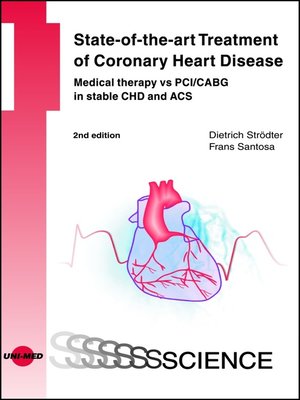
Sign up to save your library
With an OverDrive account, you can save your favorite libraries for at-a-glance information about availability. Find out more about OverDrive accounts.
Find this title in Libby, the library reading app by OverDrive.



Search for a digital library with this title
Title found at these libraries:
| Library Name | Distance |
|---|---|
| Loading... |
The treatment of coronary artery disease (CAD) encompasses many strategies all of which aim to improve symptoms and prognosis. While in the acute coronary syndrome, early revascularisation (usually by means of PCI and stent implantation) is the urgent goal of treatment, drug therapy initially has only a supportive role here but is also important for improving prognosis. The situation is reversed in the case of the treatment of chronic stable CAD: here conservative drug therapy has the dominant role and if implemented optimally is so successful that the prognosis cannot be further improved with additional PCI and stent implantation. Therefore, the indication for revascularisation should not only be based on an angiographic but also on a functional (FFR, fractional flow reserve) assessment of the stenosis.
This book is therefore a critical presentation of the benefit of treatment strategies in the different forms of CAD. In addition to the value of lifestyle changes, it deals with the evaluation of the various drug therapies, invasive procedures such as PCI and stent implantation, bypass surgery and electrotherapeutic measures with ICD, CRT and cardiac pacemakers. The authors have succeeded in producing a textbook that is not just of interest to the attending doctor but also for patients affected by the disease. A textbook from the viewpoint: what is optimal? What is economic? What is evidence-based?







